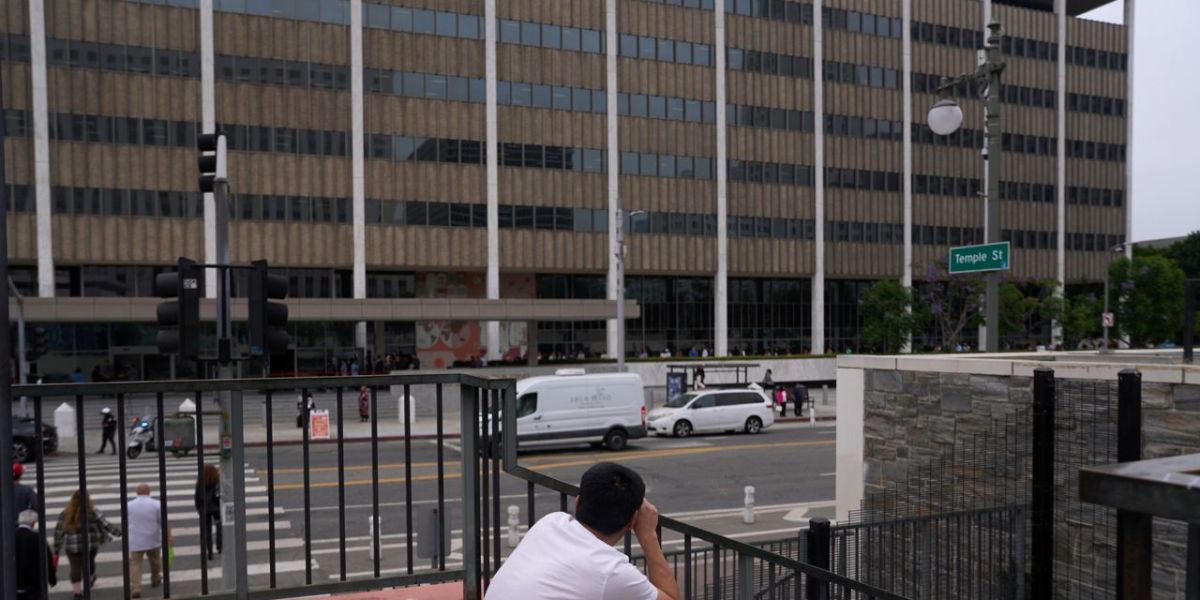Los Angeles, CA — Federal prosecutors have indicted three activists accused of illegally doxing a U.S. Immigration and Customs Enforcement (ICE) agent during protests against former President Donald Trump’s immigration raids. Authorities say the women followed the agent home, livestreamed their pursuit, and posted the agent’s address online.
According to the U.S. Attorney’s Office, the women allegedly shouted outside the agent’s residence, “ICE lives on your street and you should know,” before sharing personal details publicly.
Charges and Arrests
Each defendant faces one count of conspiracy and one count of publicly disclosing the personal information of a federal agent, according to prosecutors.
Key case details include:
- A 25-year-old woman from Panorama City, California, is free on $5,000 bond.
- A 38-year-old woman from Aurora, Colorado, remains in custody without bond and also faces a separate assault charge involving a federal officer.
- A 37-year-old woman from Riverside, California, is still being sought by authorities.
“Our brave federal agents put their lives on the line every day to keep our nation safe,” said Acting U.S. Attorney Bill Essayli. “The conduct of these defendants are deeply offensive to law enforcement officers and their families. If you threaten, dox, or harm in any manner one of our agents or employees, you will face prosecution and prison time.”
The Associated Press first reported that investigators believe the defendants followed an ICE agent from a federal building in downtown Los Angeles to the agent’s home in Baldwin Park, livestreaming the encounter in real time, according to AP News.
What Is Doxing?
Doxing refers to the malicious act of gathering and publishing private information about an individual without their consent — often for the purpose of harassment, intimidation, or revenge. In this case, prosecutors allege the defendants deliberately revealed the ICE agent’s identity and location, putting the agent and their family at risk.
“Doxing can lead to serious safety threats, online harassment, and even violence,” said a federal cybersecurity analyst not connected to the case. “When law enforcement officials are targeted, it poses a broader threat to public safety.”
Political Context and Broader Debate
The case comes amid ongoing national debate over federal immigration enforcement tactics. Critics of the Trump administration’s policies have long expressed concern over ICE agents wearing masks and refusing to identify themselves during raids in California.
In response to prior incidents, U.S. Homeland Security Secretary Kristi Noem warned in July that those publishing agents’ personal details could face criminal prosecution.
“No one has the right to endanger federal employees,” Noem said at the time, referencing similar incidents in Portland, Oregon, where flyers urged residents to collect information on ICE agents.
California’s New Transparency Law
Adding to the ongoing controversy, California recently became the first state to ban most law enforcement officers — including ICE agents — from covering their faces while performing official duties. Supporters say the measure enhances transparency and accountability, while critics argue it could make officers more vulnerable to harassment or retaliation.
Next Steps in the Case
Attorneys for the accused women have not yet been publicly identified. An email has been sent to the Federal Public Defender’s Office to confirm whether it will represent any of the defendants.
If convicted, the defendants face significant federal penalties, including possible prison sentences.
What are your thoughts on this case and its implications for privacy, protest, and law enforcement accountability? Share your views in the comments below.






